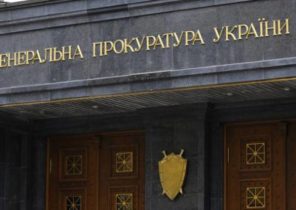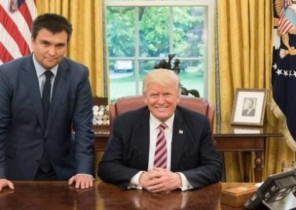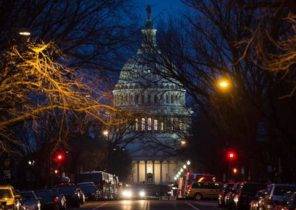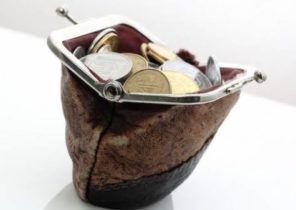At first glance, nothing has changed. Because of the gardens hear the usual country sounds. The sounds of the awakening after the winter sleep of nature, the blows of an axe, splitting logs, joyful shouting, screaming baby, rattle radio, may 9, which clearly favours the old Soviet songs. Sure! Not enough, not sound, and smell. Usually neighbors, friends or relatives are going may 9 to barbecue. But this year there is no smoke of fires: a coronavirus was stronger than the existing in Russia of the cult of the grill.
Instead, the 74-year-old pensioner Yuri Reaser had to settle for a glass of wine with his wife under a film about the war. In addition, this former community worker, whose hands are more like paws, you will not see children and grandchildren. On may 4 the couple live in the country not far from Sergiev Posad (80 km from Moscow), where is the famous Trinity-Sergius Lavra. “I can’t imagine how it was possible to stay in Moscow, — says Yuri, who built here a house in 1980 on the site of the dugout his father. — It’s not just about comfort and space — it feels safer”.
The assertion may seem surprising. Covid-19 was as a heavy blow to the capital and the surrounding area. Almost half of all cases of infection in Russia (currently less than 10 000 per day) are in Moscow region. Not bypassed by the and monks of Sergiev Posad, where until mid-April came the pilgrims to kiss the icons and relics. In addition, in terms of equipment the local hospital incredibly far from modern Moscow clinic. “The virus spreads less in the open air, — said Yuri. —People have changed habits. Even the market was closed, and local producers sell from the trunks of cars”.
Escape to nature
Millions of Russians fleeing the isolation and anxiety with the help of country houses. Some moved on a permanent basis, while others are waiting the end of the week as release. Although extended in Russia until may 31, the restrictive measures were in theory the same rigid, as in France, the authorities did not prohibit these trips. There is even a special pass there and back by car or train once a week. Policemen check documents at the entrance to the city. As a result, after the news of the introduction of self-isolation on March 27, the number of persons travelling from Moscow of cars increased by 15%, and the demand for rental homes has jumped by 90%. With the onset of good weather this trend has only gained momentum.
Although about half of the Russians have their dachas, most of them are habitable only in the warmer time of the year and have only a relative amenities: shower and toilet in the garden, a wood burning stove for heating, a temporary water supply… “Today Internet access becomes as important a criterion as hot water,” says anthropologist Mikhail Alexeyevsky from the center “Arrow”. If to judge according to his information from the Moscow and Novosibirsk regions, and the Krasnodar region, the garden went about a third of Russians. To describe the situation he used the word “evacuation”, which in Russian is associated with the displacement of millions of people in the first months of the war in 1941.
Some work remotely, while others sit without work. Anton Semkin and Sofia Trofimova long cherished dream about to leave town with his seven year old son in a holiday village “Friendship” under Sergiev Posad. The new coronavirus has accelerated the implementation of their plans, especially since the Sof is temporarily lost their jobs in the field of car rental. Contrary to the promises of power she does not receive any compensation from the employer or the state. “Products and communal here is cheaper than in Moscow,” explains Sophia. Now she and her husband engaged in repairing the house which they had bought shortly before the crisis, only a few dozen meters from where she spent her childhood.
Apolitical asylum
In the present circumstances the country is in some way returned to its historic destiny, the role of refuge from the hardships of time and the city life. It first appeared under Peter the Great (the word itself is derived from the verb “to give”), but was democratized in the 1950-1960-ies, when the Soviet government gave workers plots of 600 m2, grouping them by occupation. At that time the country was in the Soviet Union, the only place where there was a semblance of private property, as well as an antidote to the unbearable proximity of communal apartments. In addition, it is a place of freedom, although (this rule is still in force in many families) politics should not spoil the relaxation and the meeting of generations. Blue, yellow and green facades, decorated with a Flirty window — it shows the desire to stand out. The emergence of front gardens, in turn, recalls the desire for isolation.
In addition, the country helped to survive in difficult times. In the 1960s, the Soviet power stimulated summer planting potatoes to combat the deficit. In the 1990-ies millions of pensioners and other people were able to brighten up the hardships of the transition period with the help of grown on dachas products. According to a 2017 poll by the Levada center, half of Russians still every year can your fruits and vegetables. In the family of Iserov of the garden meets Larissa. But since she is already hard to bend over, a pensioner is satisfied with the cucumbers and tomatoes in upright standing iron barrels.
Country world is also filled with the most incredible items, gardens strewn with building materials and a shed, along the unpaved roads trash lying around. Here everything is allowed, from the slovenly appearance to an unexpected visit to the neighbors. Anyway, effort is considered good form. Need without the end of something to repair, improve, expand, build a veranda and a bath… to Avoid works can only children. For generations of Russians childhood are inextricably linked with the country, in the summer with my grandmother, the garden, fishing and mushroom picking.
Simple pleasures
“Work is rest” was celebrated on may 10 62 Sergey Novikov for the painting of the front garden. In a past life he was an electrician, and before that a soldier of special forces of the army. In other words, covid-19 not frighten him. Sergey lives here with his wife Rose on the site, which managed to obtain his father as responsible for the fleet “Literary magazine”. Writers left, resold the plots to rich Muscovites, but he left. At the time of isolation came to them a daughter, wife, husband. Both of them lost a chef’s job and it’s been half a month do not earn a penny. Family keep warm, cutting down the last tree in the garden.
Old and tatty oven Sergei Novikov contrasts with a beautiful fireplace, which sits Kirill Filin. This designer 30s now sits without work, and his fiancee love the Sleek, a flight attendant by profession. Anyway, they have savings and one of the best and most modern houses in the holiday village, whose manicured lawn, is reminiscent of English cottages.
With traditional wooden houses increasingly compete with modern brick buildings or even castles reminiscent of a luxury residence. The new generation often refuses to testify, preferring to travel abroad onerous contents of the old house.
Cyril and Love to rediscover the country through the insulation. They have blended into one the old and the new: food and online games, canned food and wine tasting… Cyril the third time watching “Star wars”, and recognizes that increasingly allows itself to meeting neighbours and childhood friends. Giving it is fun, and the local routine — shelter from anxiety. Many have no idea how would be able to survive the crisis without it. “I would have continued to ride, even if it was banned, — Irina sure that every week is selected here from an apartment in the suburbs of Moscow. Before isolation, I was looking forward to the weekend to escape to the country. Life in Moscow is usually too heavy. And so now…”
Whatever it was, the flight of city dwellers to the countryside and a weakening of the constraints are of concern in certain regions. So, some suburban municipalities seek to take action against the influx of people, because they do not believe that fresh air will be able to contain the spread of the virus.







